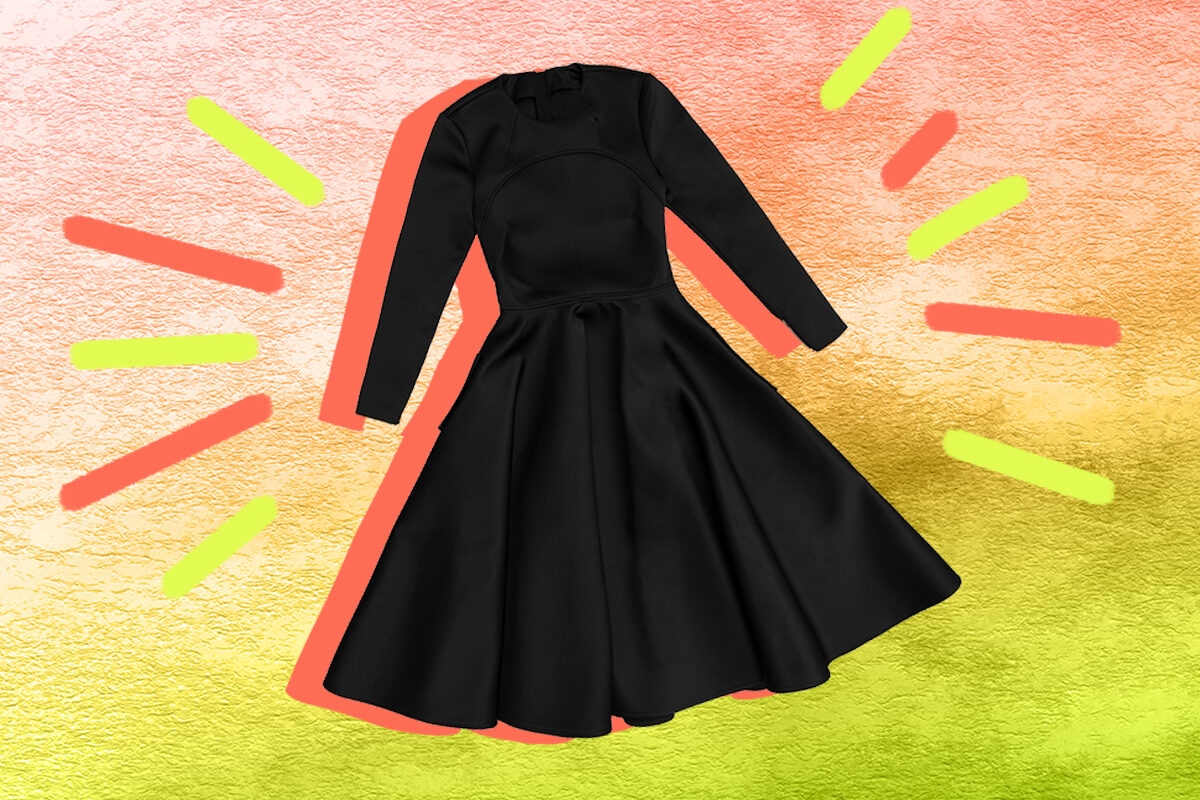Party dresses — are they still a thing? With weddings, bar and bat mitzvahs, and even funerals all relocated to Zoom, one wonders when we’ll ever get dressed up again. But does it hurt to hope?
The other day, while meandering through eBay’s virtual aisles, avoiding my latest writing project, I found a dress. Not just a dress but the dress: a black velvet bodice and a flounced plaid silk skirt. It looked like something Meghan Markle might have worn had she stayed with the royals. Best of all, with its long sleeves and high neck, the dress was both stylish and uncompromisingly modest.
The price? A mere $55, a fraction of its original cost when it began its life at Brooks Brothers.
Now came the big question: To buy or not to buy. The dress did fill a wardrobe gap. Early in the virus’s first wave, during a moment of despair-tinged philanthropy, I donated my previous party dress, black velvet and chiffon number from Eileen Fisher, to a needy friend. In those days, the notion of physically attending celebrations felt very, very far away. But what about now?
Until Israel entered its second lockdown on September 18, my friends and neighbors had partied in real life from a social distance. Just six weeks ago, I attended a bar mitzvah. There were tiny tables scattered across a dark garden and individually wrapped, handmade petite fours in place of a buffet table. Clearly, the hostess had bent over backwards to adhere to the rules but did it work? When I walked in, the guests were schmoozing at dangerously close range, their masks dangling at their chins. Perhaps that’s why we’ve hit a second wave.
But back to the dress. Lacking clarity as to when I may have an occasion to wear it, I decided to gamble. I figure I’d offer the seller $20 —a sum paltry enough that if it languished in my closet I wouldn’t feel too guilty about it. I reasoned that, most likely, the seller would leave me hanging for a day or so and then refuse my offer — by which time I’d have lost my enthusiasm for the dress.
It was a perfect plan, except that it didn’t happen that way. To my surprise, the seller answered right away. “Congratulations,” she told me,” the dress is yours.”
For a moment, I reveled in my own bargaining skills — after all, I’d successfully driven the price way down. But after the thrill faded, I was left with a severe case of buyers’ remorse. What justification did I have for buying this dress? With continual new outbreaks and no vaccine in sight, did I really believe I’d be dancing at weddings by winter?
Confused, I decided to see if Judaism had any wisdom to shine on this dilemma.
I knew that in Pirkei Avot, or Ethics of the Fathers, a compilation of ethical teachings by the rabbis of the Talmud, it says to live every day as if it were your last. In that case, how would one ever dare to buy a dress? Who needs a new dress if it’s their last day on Earth? Then again, if it’s your last day to live, why not spend it wearing a beautiful new dress?
Then, my mind flashed back to the before times: Back in the spring of 2019, I took a tour to Rabbi Nachman of Bratslav‘s grave in Ukraine. Relaxing in Uman’s beautiful Sofia Gardens, an arboretum in the northern part of the town, one of my fellow travelers told me how she had bought a new wig to wear to her daughter’s wedding, long before the bridegroom appeared. “Rabbi Nachman says that when you do that, you’re making an opening for a blessing to flow,” she said. Call it the doctrine of holy imagination.
At the time, I found the idea both exciting and a bit delusional. Certainly it was something I thought I’d never do. But now I wonder: Is this why I bought the dress and matching shoes? (Yes, I couldn’t resist — the black patent leather pumps with a kitten heel were a perfect match.)
There’s an old Yiddish proverb that goes, “Tracht gut vet zein gut” — “Think good and it will be good.” This upbeat message has long resonated with me, and perhaps it’s why I took the plunge and bought the dress.
Someday, hopefully soon, I’ll wear them to a son’s engagement, a grandson’s bris, or maybe I’ll wear them on a great day we are all waiting for: the day this accursed plague leaves us. As they say, halevai — if only it should be so. May that day come soon.
Header Image by MarisaLia/ Getty Images








